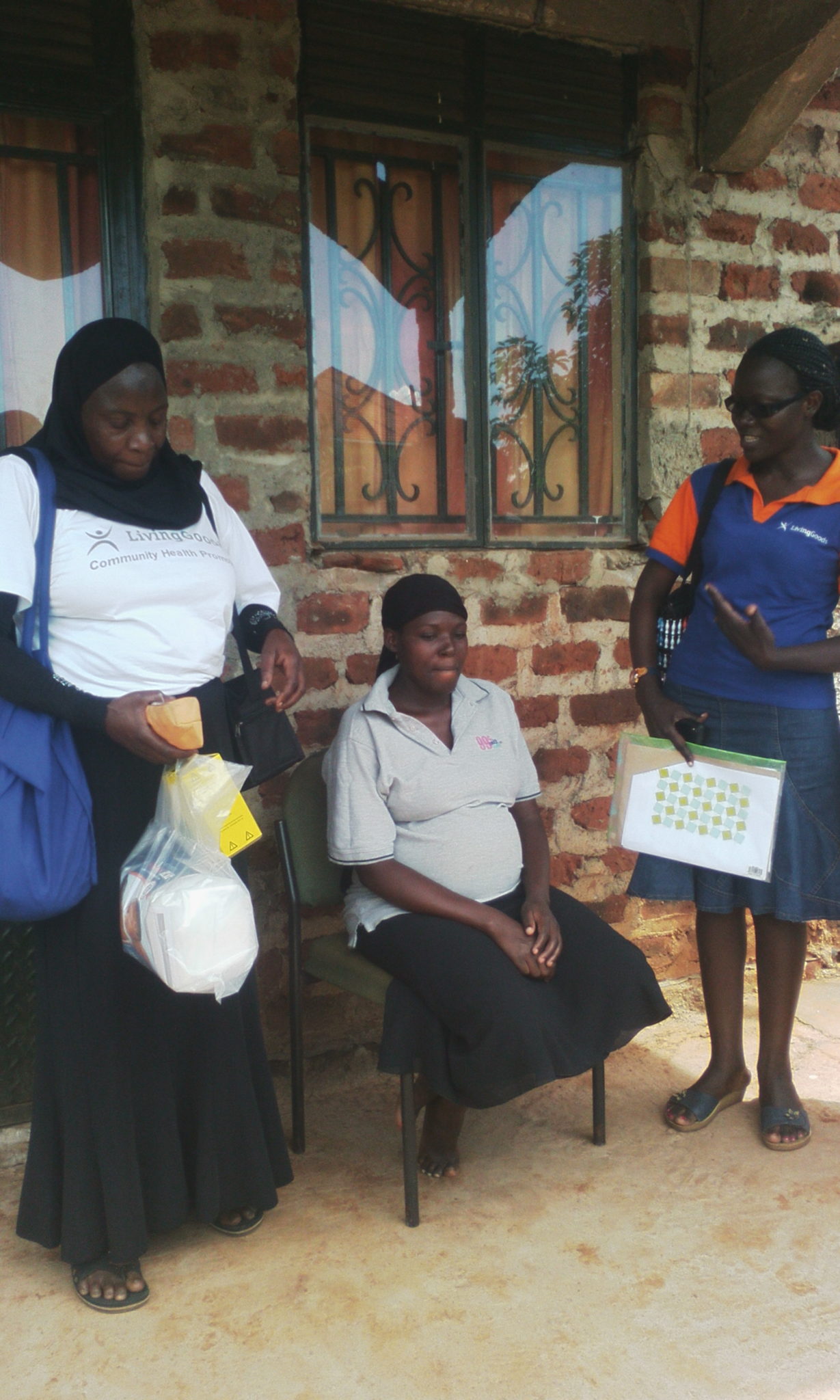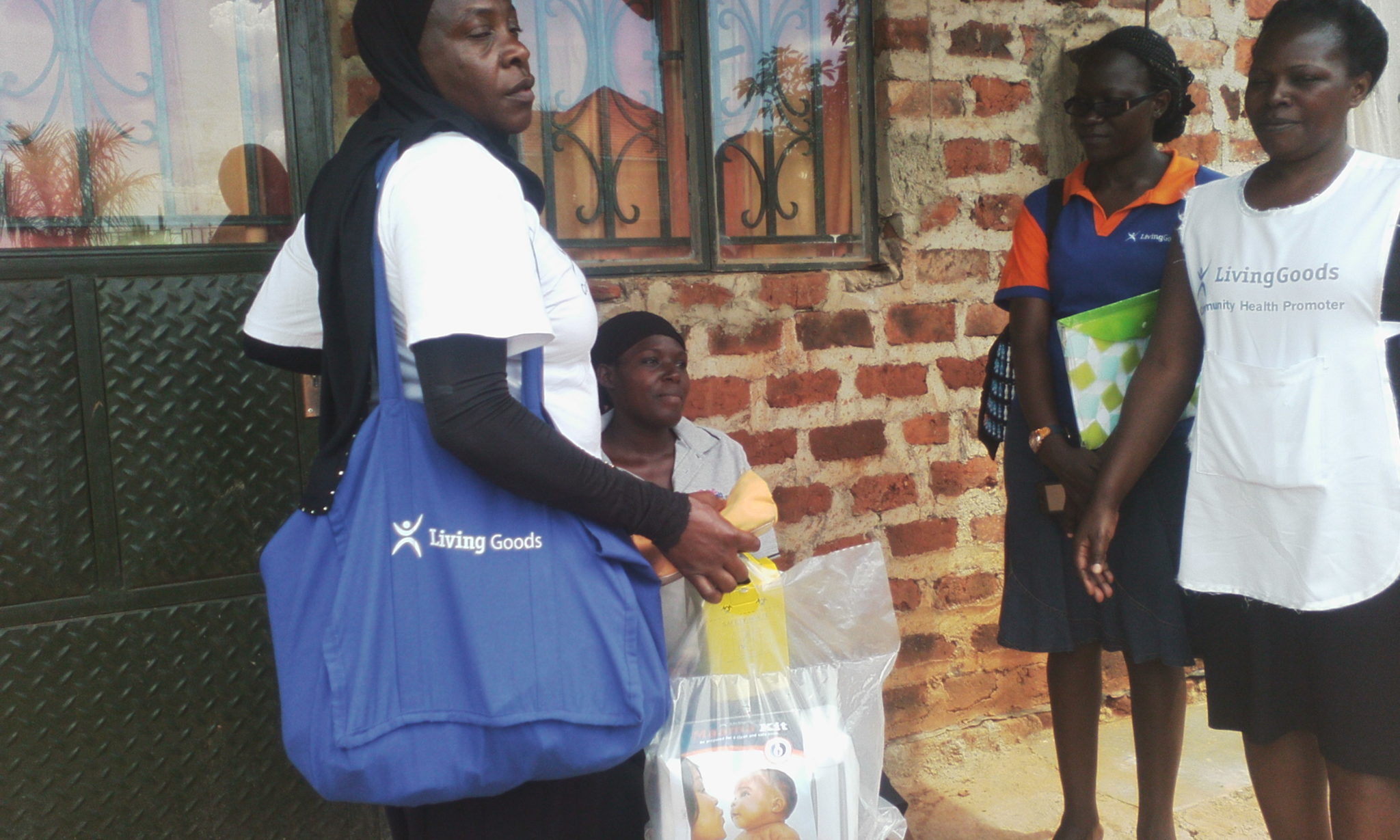“Living Goods solves two of our biggest operational and financial challenges in the health sector: how to keep vital medicines in stock and how to compensate and retain community health workers,” the Prime Minister of Uganda, Ruhakana Rugunda remarked recently about Living Goods, an NGO providing health products to Ugandans.
According to a recent random study, Living Goods has reduced the under-five mortality rate by over 27% since its arrival in the country in 2008.
The organization has improved the health of Uganda’s pregnant women and new births by teaching families how to improve their health and wealth through selling life-changing products like simple treatments for malaria and diarrhea, safe delivery kits, fortified foods, clean cook stoves, and solar lights. It has also created employment for women.

Over 5000 women have been hired by Living Goods to sell its health products door-to-door in the rural communities. Through an organised media field visit on Monday, journalists were able to visit the organisation’s offices, branches and even visited some of the women and children who are being taught and treated by Living Goods’ agents.
Speaking to journalists, all the agents were full of praise for the organization.
“Before I joined Living Goods, I was merely just a farmer and charcoal seller. At the moment, I have improved lives of many women and children in my community…..before they used to call me ‘charcoal seller’ but at the moment everywhere I pass they tell me ‘bye bye’ musawo,” said Hamida Nakabugo, an agent of Living Goods.
Nakabugo is based in Nakwero village, Kira Subcounty, Wakiso District, and she says that unlike before, the organization has improved her livelihood because it pays her for the work done.
According to the organization’s director, the agents are neither volunteers nor salaried employees, though they earn some remuneration at the end of the month.
He said his agents are trained in detecting simple illness like Malaria and diarrhea. They are equipped with smart phones that help them administer the proper diagnosis for the ailments or refer them to qualified facilities for the case of serious health issues.
They are given Living Good products that go for a 20% discount in relation to market price. Agents work for only two hours a day and at the moment, the organization is in 15 Districts with a reach of 5 million people according to its records. Journalists visited some of the people that Living Goods is treating and selling drugs.
“I thank Living Good for treating and teaching me. Musawo (LG agent Hamida) often checks on me to see how I feel and teaches me how to feed and also to prepare for my delivery,” said Zakiya Nakabuyi, a resident of Nakwero and mother of two. She is 7 months pregnant at the moment and the nearest health center is 3Kms away.
Ms. Nakabuyi had a miscarriage for her second born and doctors never told her what could have caused the miscarriage.
“I was so worried over this pregnancy (current) because I was afraid I was going to lose it too. But I think because I have been getting the best guidance and care from the LG agents on how to take care of my pregnancy, it’s the reason I have still have my pregnancy.”

Annet Baddet, who lives a stone’s throw away from Nakabuyi’s home, was also full of praises.
The 33-year old mother of one said with the teaching and guidance she had been getting from LG agents, she had prepared well for the delivery of my baby. To prove how ready she was, she entered her one roomed house and brought out a ‘Mama kit’ that she has already bought in preparation.
According to Ms Nakabugo, ‘Mama kits’ are some of the products required for pregnant women while delivering. “Buying them in advance reduces on the last minute stress and buying it expensively at hospital or clinics. We advise them on the nutrition, necessities needed while giving birth and to choose the best hospitals before their time for delivery. As for us, we don’t have the expertise of helping women deliver. We only treat simple health issues and advice on nutrition,” Ms Nakabugo says.







